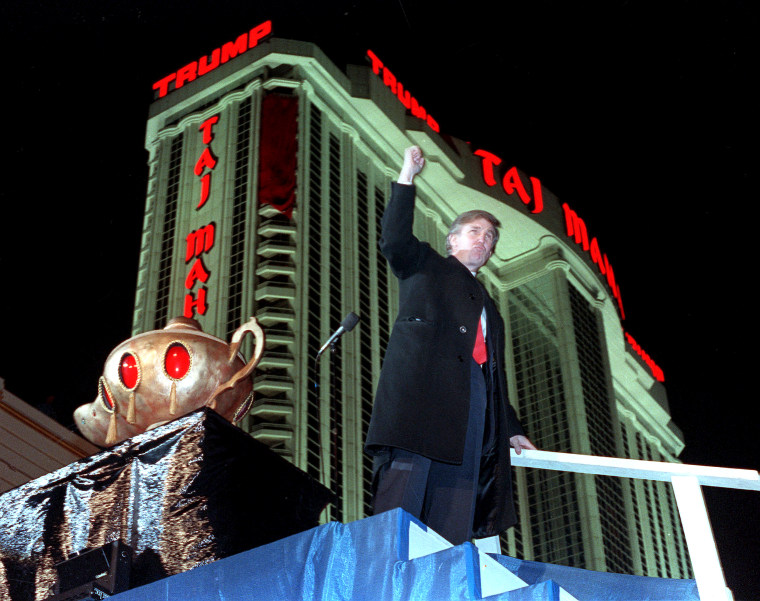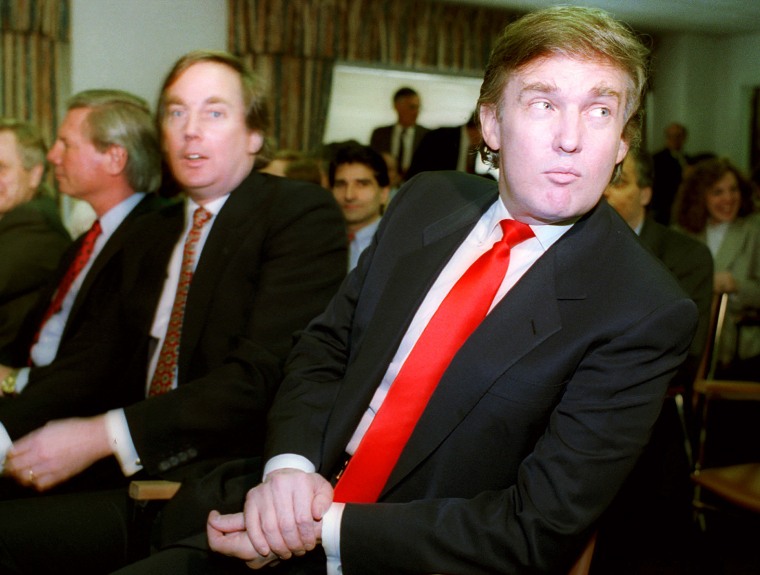Archived material is important to understanding President Trump: His eventual ability to achieve what he thinks is best for all of us (whether it be in deliberations with Congress or the North Koreans) leaves many with anxiety even if they agree with his perspective about what would be best. No one outside of his inner circle really knows whether he always takes the best approach or, when facing stress, whether he consistently takes the long view or looks for the easy solution, even if there are ethical concerns.
Despite 35 years in the national spotlight, our president in many ways remains a mystery. We know very little about how his self-proclaimed negotiation skills actually served him in his business; his book, “The Art of the Deal,” was ghost written and there are few public examples of how his company pitched an idea or concept before his way of doing so was marketed to viewers of The Apprentice.
Still, when I searched for Trump's name in the Truth Tobacco Industry Documents website (which is comprised of tobacco internal documents made public as a result of litigation brought by health advocates), I was startled by the carelessness of the Trump Organization. Trump was once willing to sell out the health of his employees and casino guests for $150,000 (which is only $247,000 in today’s dollars) and a few thousand more in additional fees.
Trump was once willing to sell out the health of his employees and casino guests for $150,000 (which is only $247,000 in today’s dollars) and a few thousand more in additional fees.
The proposal in question was from 1995; Howard Herman, the business development director with the Trump Taj Mahal casino in Atlantic City, wrote to Susan Altschul with Philip Morris, the parent company of the Marlboro cigarette brand.
Herman’s proposal on behalf of Trump cuts right to point: “As per our discussion, we at the Trump Taj Mahal will detail a partnership program…[we aim] to sell more cigarettes, not only on site, but at retail as well.”
The slick 25-page proposal goes on to lay out a “mutually-beneficial partnership” that would have included marketing, product placement and promotional activities.

The pitch says that the expected 5 million annual visitors to the Trump Taj Mahal would see three big signs emblazoned with the Marlboro logo at the casino, heralding a new Marlboro Poker Room. The cigarette’s familiar red logo would also be seen in ashtrays in the casino’s gaming rooms, be sold at a kiosk and the company’s products would be featured in direct mail to Taj Mahal’s target audience and on billboards.
Appreciating the venality of the proposal requires a review of public health history. By 1995, cigarettes had for decades carried the Surgeon General’s warning that they caused lung cancer, heart disease and emphysema and the concerns about second-hand smoke were also well known. Several California municipalities had banned smoking in restaurants in 1987, New York state passed its first non-comprehensive smoking ban in 1990, and New York City and California both enacted bans on smoking in many public places in 1995. Congress had banned smoking on all domestic flights in 1990 and the Environmental Protection Agency had decided that passive smoke belonged on the major carcinogens list.
None of that seemingly bothered Trump. By 1995, his back was up against the wall in trying to keep control of the Taj Mahal, so the Marlboro Poker Room funded by Philip Morris was a totally acceptable gambit. (In the end, there is no indication if Trump’s proposal went anywhere with Philip Morris or any other company, or why.)
Today, of course, President Trump makes decisions that affect all of us, and privileging financial opportunities for businesses over the health and safety of employees and customers is well within his power. It’s easy to understand why he empowers his team, like the erstwhile EPA Administrator Scott Pruitt, to ignore established science: If in the 1990s he didn’t care about the science of second-hand smoke, it makes sense that he wouldn't care about the science of climate change in 2018. All that matters is making more money.
In this regard, he and his new team, this time comprised of top government officials, are about to face a moment of truth. The Food and Drug Administration long-held plans to reduce nicotine in cigarettes to a non-addictive level. It’s a praiseworthy initiative that will result in longer lives and, hopefully, that will matter more than the effect on the company from whom Trump sought money from more than two decades ago. The question is whether he will stand firm against the industry he once sought for a partnership, or whether he — or his FDA administrator, who was until recently an investor in e-cigarettes — will fold.
Adam Shapiro investigated the tobacco industry as a reporter for the NBC affiliate in Winston-Salem, N.C., in the 1990s. He is now a communications consultant in Washington, D.C.
